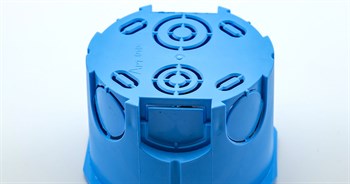Should I Use Plastic Or Metal Electrical Box? | Junction Box


Light switches, outlets, ceiling fans and lights, and transition wires are just some of the items housed in electrical boxes. Unlike electrical or breaker panels, which are nearly always made of steel, electrical boxes can be constructed of metal or plastic. Depending on the circumstances of how they’ll be used, one material can be preferable to the other.
Mục Lục
What’s an Electrical Box?
The three boxes most used in homes are:
- 4-inch round boxes for ceiling light fixtures, wall sconces, smoke alarms, and carbon monoxide detectors.
- Single-gang boxes for basic outlets and switches.
- Double-gang boxes for two light switches or duplex receptacle outlets.
Electrical boxes are much more than containers for wiring; they also protect wires and cables from getting damaged, loosened, or pulled apart, all of which can leave you without power or, worse, cause an electrical fire.
When To Use Plastic Junction Boxes

PVC has become the standard electrical box material, especially for DIYers. Lightweight and easy to work with, many of them also come with built-in clamps for wiring. Though PVC can melt when overheated, it does not conduct electricity like metal does. Use plastic boxes when:
- There are non-metallic (NM) cables leading in or out of the box. Metal-sheathed wiring relies on bonding with the metal electric box for grounding and should not be used in plastic boxes.
- You’re doing the job yourself. Pre-attached nails for attaching the boxes to stubs make installation easy and presets on the box indicate the thickness of half-inch drywall, which helps you avoid nailing the box face flush with the wall.
One negative to plastic boxes is their tendency to distort when stressed; and if they’re hit hard enough, they can crack. And while the pre-attached clamps are convenient, it’s often difficult to remove the cable once it’s clamped.
When To Choose Metal Boxes
In use for far longer than PVC versions, metal electrical boxes are super-strong, fireproof, and incapable of melting. They offer the greatest level of security for electrical wiring applications. It’s also virtually impossible to crush or bend a metal junction box!
If you’re doing the job yourself, it can be a little more difficult to work with a metal box. The rear and side knock-outs call for supplementary clamps and the sharp edges can be brutal to your hands, so be sure to wear gloves when working with one.
Metal boxes should be used:
- When metal-sheathed cable or metal conduit is running in or out of the box.
- For interior exposed application such as in an unfinished basement or mudroom where there’s no drywall.
You can use a metal box for NM wiring, but special precautions should be taken to ensure proper grounding.
Weatherproof Electrical Boxes
When installing electrical boxes outside your home, garage, or building, a weatherproof box, when properly connected, seals out inclement weather so moisture doesn’t get in and short out the connection. When the outlet is in use and in danger of getting wet, a flip-up cover can be used to keep the outlet and cords unexposed to rain.
Professional Electrical Services in Jacksonville, FL
The electricians at David Gray are well-versed in the different applications of all electrical boxes. When you hire us, you can count on high-quality electrical products and services in the Jacksonville & St. Augustine area. We’ll make sure to pick the right material for the job so your electrical wiring lasts as long as possible. Put your trust in the local electricians with over 40 years of experience!
If you want to learn more about electrical boxes, or to schedule an appointment to have them installed by one of our skilled electricians, contact David Gray Electrical Services online or by calling us at (904) 724-7211.















![Toni Kroos là ai? [ sự thật về tiểu sử đầy đủ Toni Kroos ]](https://evbn.org/wp-content/uploads/New-Project-6635-1671934592.jpg)


